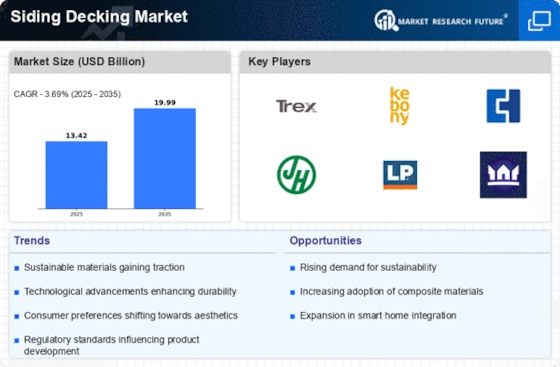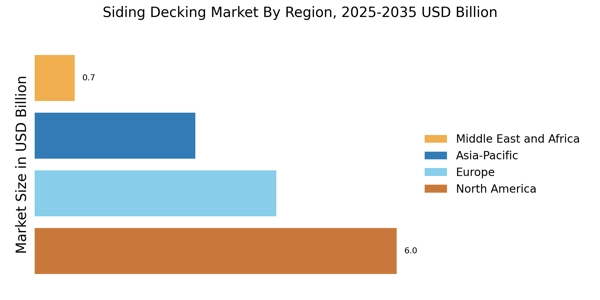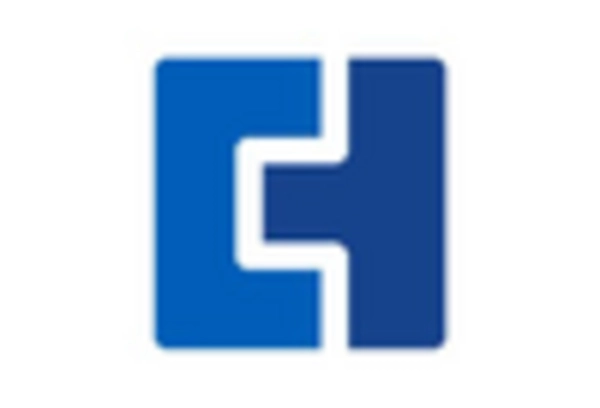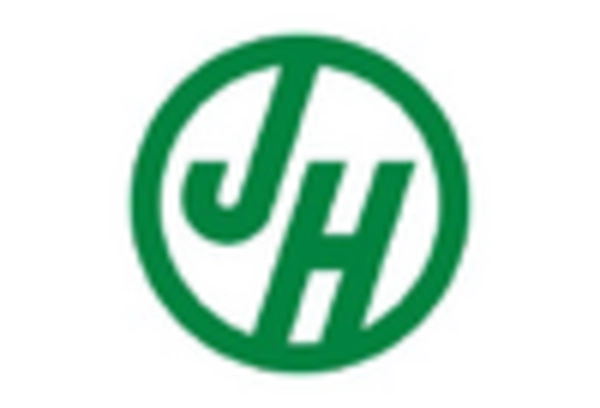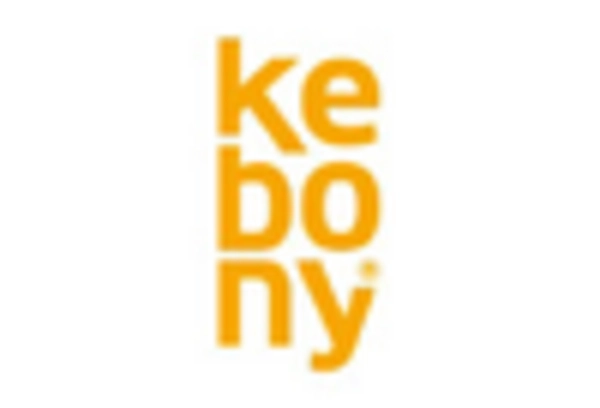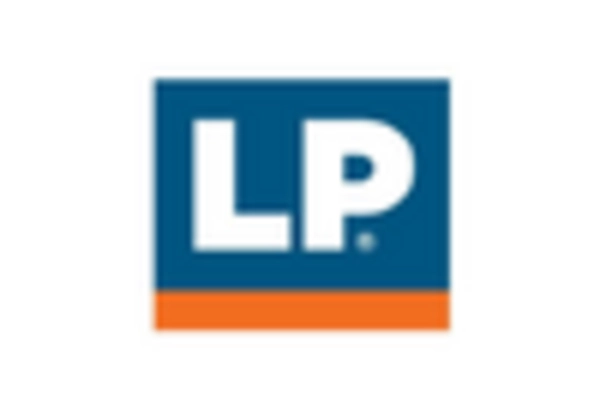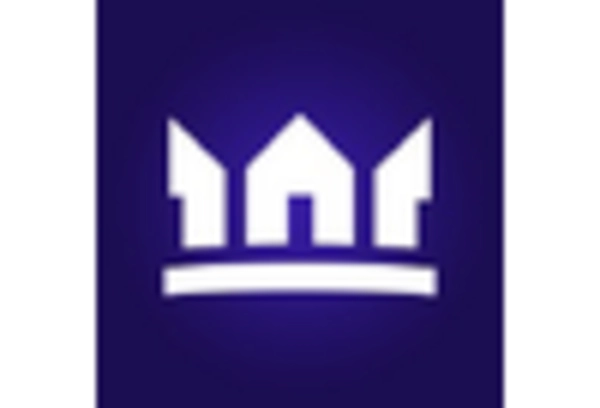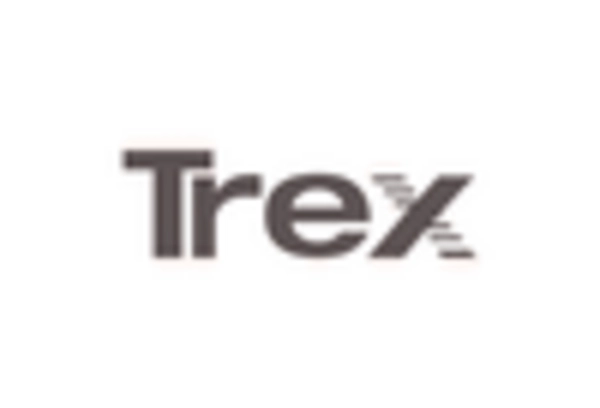Customization Demand
Customization demand is a significant driver in the Siding Decking Market. Homeowners are increasingly seeking personalized solutions that reflect their individual tastes and preferences. This trend is prompting manufacturers to offer a wider array of colors, textures, and finishes. According to market analysis, nearly 40% of consumers express a preference for customized siding and decking options. This demand for tailored products not only enhances customer satisfaction but also fosters brand loyalty. Companies that can effectively respond to this trend are likely to capture a larger share of the market. As such, the Siding Decking Market is evolving to accommodate these preferences, leading to a more diverse product landscape.
Regulatory Compliance
Regulatory compliance is becoming an essential driver in the Siding Decking Market. Governments are implementing stricter building codes and environmental regulations, which necessitate adherence to specific standards for materials used in construction. This regulatory landscape is pushing manufacturers to innovate and ensure that their products meet these requirements. For instance, compliance with fire safety standards and energy efficiency guidelines is increasingly critical. Data suggests that companies that prioritize regulatory compliance may experience a competitive advantage, as they are better positioned to meet market demands. Consequently, the Siding Decking Market is witnessing a shift towards products that not only comply with regulations but also promote safety and sustainability.
Technological Innovations
Technological innovations play a pivotal role in shaping the Siding Decking Market. Advancements in manufacturing processes, such as improved composite materials and enhanced durability features, are becoming increasingly prevalent. These innovations allow for the production of siding and decking products that are not only more resilient but also easier to install. Furthermore, the integration of smart technologies, such as moisture detection and temperature regulation, is emerging as a key differentiator in the market. Data indicates that the adoption of such technologies could lead to a 15% increase in market share for companies that effectively leverage these advancements. As a result, the Siding Decking Market is witnessing a transformation that emphasizes both functionality and user experience.
Sustainability Initiatives
The Siding Decking Market is increasingly influenced by sustainability initiatives. Consumers are becoming more environmentally conscious, leading to a rising demand for eco-friendly materials. This shift is evident as manufacturers are investing in sustainable sourcing and production methods. For instance, the use of recycled materials in siding and decking products is gaining traction. According to recent data, the market for sustainable building materials is projected to grow significantly, with a compound annual growth rate of over 10% in the coming years. This trend not only aligns with consumer preferences but also encourages companies to innovate in their product offerings, thereby enhancing their competitive edge in the Siding Decking Market.
Economic Growth and Housing Market Trends
Economic growth and housing market trends are significant factors influencing the Siding Decking Market. As economies recover and expand, there is a corresponding increase in residential construction and renovation activities. This uptick in housing demand is driving the need for high-quality siding and decking materials. Recent statistics indicate that the housing market is projected to grow by approximately 5% annually, which bodes well for the Siding Decking Market. Additionally, as disposable incomes rise, consumers are more willing to invest in premium siding and decking options. This trend not only supports market growth but also encourages innovation in product offerings, as manufacturers strive to meet the evolving needs of consumers.


